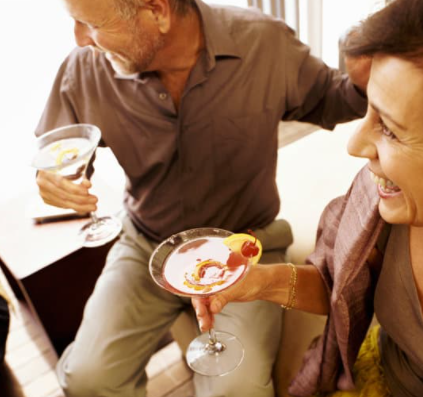
Headache. Nausea. Fatigue. The “joys” of a hangover. Almost every adult has experienced a hangover at some point of their lives. A raucous wedding reception. A college reunion with your old drinking buddies. A Sunday Funday brunch with the gals that extended into the evening hours. You awaken the next morning with your head heavy and your stomach in knots. At that point, you probably make a half-hearted promise to never drink again in order to avoid experiencing this horrible, debilitating feeling ever again. But chances are, it just might happen again.

While studies have shown that some alcohol consumption can actually have health benefits, it can also have negative effects such as digestive issues, high blood pressure, liver disease, and more commonly - hangovers. The most straightforward way to avoid a hangover is to drink in moderation.
Headaches associated with hangovers are typically caused by dehydration. Because alcohol is a diuretic, it will cause you to urinate frequently. As a result, if you consume alcohol or beer on a regular basis, your body will remain dehydrated. When you wake up with a bad headache and then turn to coffee for a cure, which is also a diuretic, the process of dehydration worsens. A cycle of dehydration and headaches!

With a hangover, you need to deal with the alcohol that has remained in your system. Even if a hangover makes you want to stay in bed, the key to getting back on track is movement and non-alcohol liquid consumption. Sweating may be needed to rid your body of the alcohol. Sweating removes toxins from your body and makes you feel better. You can get over a hangover by going on a brisk walk or exercising, as the heat your body emits will be too much for the alcohol toxins to handle, thus expelling them. And of course, drink a lot of water to rehydrate and expel toxins through urination.
Although a hangover can be unpleasant, it is avoidable. The first rule of consuming any alcoholic beverage is to never consume it on an empty stomach. If you eat a good meal before you start drinking, the food will help you digest the alcohol much better. When the alcohol begins to wreak havoc on your stomach, consider eating high-fat foods like cheese. Drinking water between courses also helps immensely as alcohol dehydrates your body quickly.
The key to avoiding a hangover when consuming alcohol is to drink in moderation and never allow yourself to become overly inebriated. Slowly sip your wine. Savor the flavor of your whiskey. Relish the rare bourbon. Luxuriate in the deliberate consumption of your mixed cocktail.

- Hair of the Dog - Having another alcohol-based drink the day following your wild night out. Some say this helps as the body is going through a withdrawal and craving alcohol. However, this just perpetuates the cycle.
- Pedialyte – A former work colleague swore by this. He had several bottles in his office cabinet to consume after a late night out. While it does help with the dehydration, what will the babies think?
- Junk food- Sugary, greasy foods. Think: Hot Cheetos and a Coke. McDonald’s French fries.
- Pickle Juice - While I used this as a recovery drink following long marathon training runs, I have been told this helps with hangovers. Perhaps it does as fluid and salt replenishment.

How do you deal with over-consumption of adult beverages? What is your personal trick to manage hangovers?


